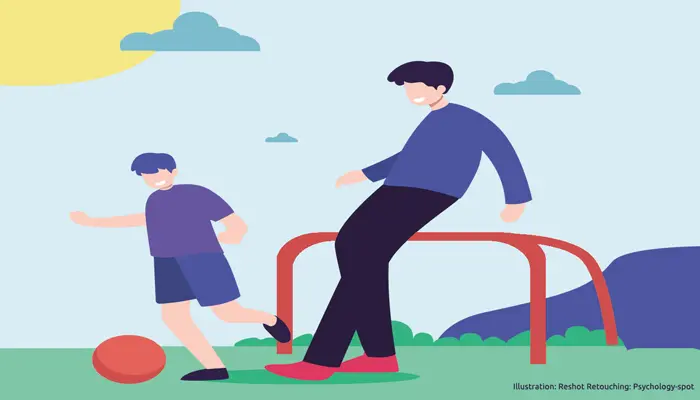
Sometimes children drive us crazy. As much as you love your children, they can make you angry. Sometimes your patience can crash against the wall of their stubbornness and your serenity shattered by the screams of their tantrums. It is perfectly understandable.
However, even in the most difficult moments, we should not stop speaking with love to our children. Remember that words have a direct psychological impact, which is why they can leave deep wounds in the hearts of little ones.
The great challenge of parents: keep calm
Children often go through stages where they develop more challenging behavior. Searching for their identity, they test the limits and enter into power struggles with adults to try to assert themselves or achieve what they want. In these phases, tantrums and negativism can become very difficult to manage.
However, as parents, we need to remain calm and correct these behaviors firmly, but with love and respect. Yelling to try to correct the misbehavior will only raise the emotional temperature. Psychological abuse conveys rejection and validates violence as a way to resolve conflicts.
When parents lose their roles, they build walls that keep them away from their children. Bad behaviors must be corrected. No doubt. But the way you do it will make a difference.
Love is one of the fundamental pillars of parenting. It nurtures a healthy self-esteem in children and helps them develop a secure attachment. However, sometimes it is not enough to feel love, you have to know how to express it through positive communication. The words you choose and the tone of voice you use can reveal that love or, conversely, convey rejection.
As parents, we are the first and main model that our children have, so if we want to raise emotionally stable adults, it will be better to educate them in respect and turn dialogue into our best ally. As Confucius said, “Something can be achieved after three hours of discussion, but it is more likely to be achieved with just three words imbued with affection.”
Evict negative labels from home
Words do not fall on deaf ears, especially when directed at children. In 1987, a psychological study conducted at the University of Calgary warned that “Verbal abuse may become an increasingly common way to control and discipline children due to increased awareness of the consequences of physical abuse.” In practice, these psychologists noticed at that time that parents were changing the form they discipline their children, but not the content. They replaced physical spankings with verbal spankings.
They also added that “Verbal abuse can have a greater impact because the child who receives it has a harder time defending himself.” Almost 30 years later, another group of psychologists from Indiana University, found that during the first years of life children are particularly vulnerable to verbal violence and emotional abuse.
That first study explained that “Because children tend to identify with their parents, their verbal abuse becomes a way in which they later abuse themselves.” In other words, the words and labels we use to refer to our children have a huge impact on their confidence and self-esteem.
Children end up introjecting the acid words that arise in moments of tension and frustration, so they build their self-image around labels such as “useless”, “stupid”, “spoiled” or “annoying”, even if they are not true. These qualifiers will become the mirror in which they reflect themselves, children will incorporate them as part of their identity, so that they will end up feeding a negative self-image that limits their potential.
Instead, kind words wrapped in love will help them develop a more positive self-image. They will become the fertile ground in which can grow a solid self-esteem and a sense of self-efficacy that pushes them to set ambitious goals in their lives.
Educating in dialogue is possible
Many times, educating a child means educating oneself. Parents face the double challenge of raising a little one while continuing to grow as persons. Undoubtedly, early childhood education carries great responsibility and brings with it new obligations and stresses. To face these challenges successfully, it is necessary to learn to manage your own feelings.
Only when we have made peace with ourselves and learn to control frustration, cope with stress, and manage anger can we become role models of emotional intelligence for our children.
Positive parenting is that adventure: it is about eliminating all traces of violence or anger to replace it with love, respect and communication. That does not mean that parents have to become immutable zen monks. It is normal for them to get angry or frustrated at times, especially in vital periods in which responsibilities and stress accumulate. However, they should not dump the responsibility on their children.
After a scolding without reflection, there is no teaching left. After a scream only fear remains, and after a negative label a wound that will take time to heal. That’s why it is important that we make sure that children understand their mistakes and follow the rules, but always with unconditional love. You have to connect calmly and without reproaches, making it clear that a respectful dialogue is the only way.
Sources:
Campbell, A. M. & Hibbard, R. (2014) More than words: the emotional maltreatment of children. Pediatr Clin North Am; 61(5):959-70.
Ney, P. G. (1987) Does verbal abuse leave deeper scars: a study of children and parents. Can J Psychiatry; 32(5): 371-378.



